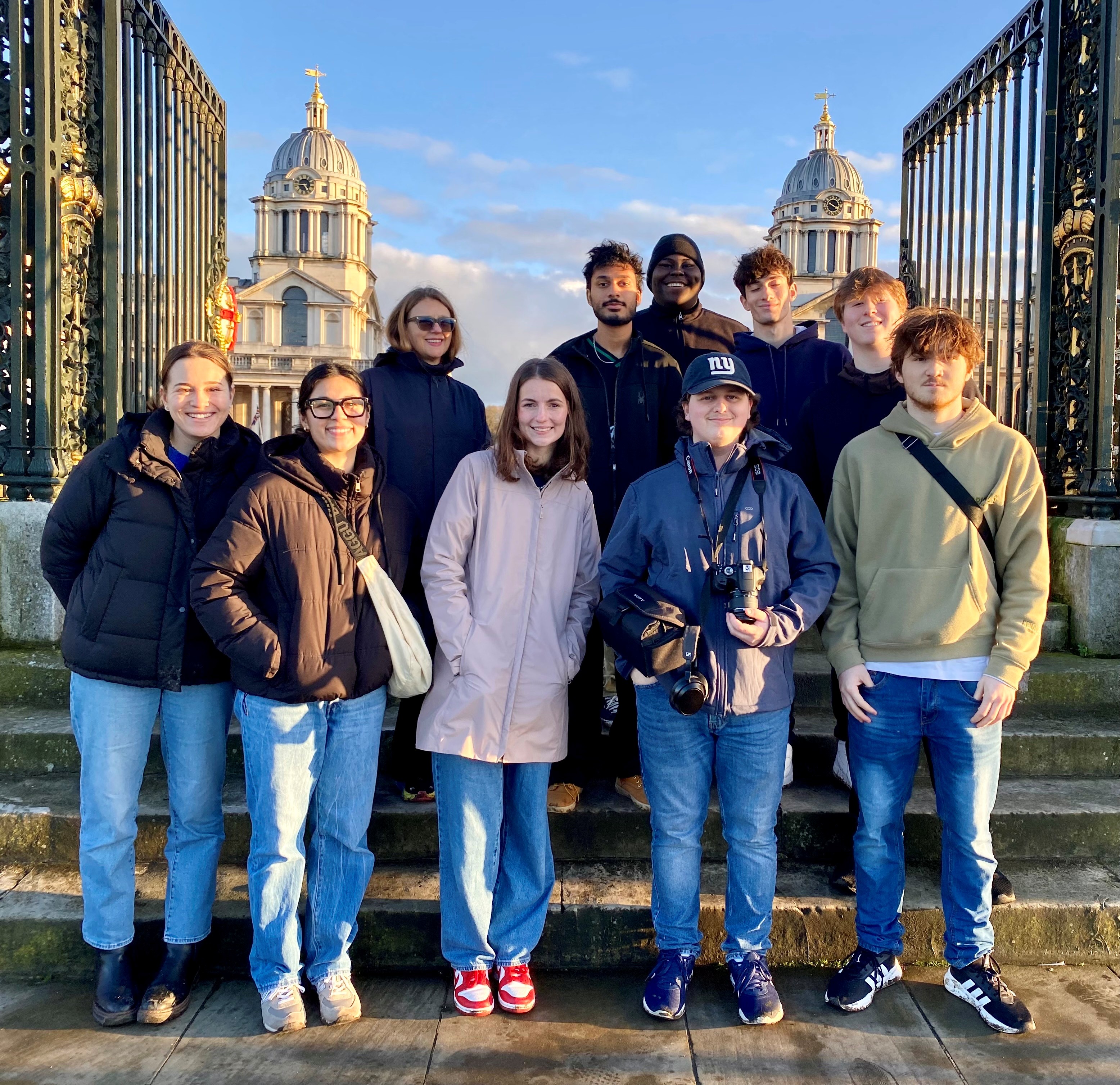While it’s true that studying abroad is about more than just the study – making new friends, immersing in a new culture, becoming more employable, and that’s just for starters – it’s the quality of our education and wealth of classroom experiences that really make a lasting and profound difference for our students. But what does that mean? I spoke to a few of our faculty to learn more about what makes our classes so valuable and understand how they create exciting yet rigorous learning opportunities.
‘There are so many reasons why teaching at FIE offers an especially engaging educational experience, for students and faculty. All the courses are continually refreshed to keep with the rapidly changing landscapes of our political, social and cultural life. We teach in London - one of the world’s greatest cities – which is alive with history, culture and diversity. My teaching on the FIE courses Media and British Life and Visual Media is informed by an extensive background in media production. I am always keen to create opportunities for my students to consider not just the content of media output, but the social, cultural and technological context in which it is produced.
For instance, this semester my Media in Britain students visited the newsroom of national broadcaster Channel 4 News and heard from key players in this Emmy award-winning production. We visited The British Film Institute to watch a new film from one of our most revered directors, Mike Leigh. In the British Life and Visual Media course, we have been to exhibitions at Tate Britain, and the British Library; learnt about street art and culture in London’s East End; and taken a boat trip to the UNESCO World Heritage site of Greenwich. Situating course material against the backdrop of these experiential trips, and input from guest speakers with specialist knowledge, brings learning alive, and is unique to FIE and the Study Abroad experience.
Enabling students to experience London life and history firsthand, expanding their ideas of Britishness in a vibrant and immersive way is immensely rewarding.’
Brenda Kelly, Faculty in Media Studies
‘I love the fact that I get to teach multidisciplinary courses at FIE. For example, my students examine contemporary British society through the lenses of sustainability, culture, economics, politics, and history. This multidisciplinary approach creates a classroom environment where students from different academic backgrounds get to exchange perspectives and inevitably gives rise to great conversations.
We always connect the learning we do in the classroom to contemporary life in Britain through co-curricular trips. These trips are unique opportunities for students to explore how the meanings of British identity and culture are not solely – or even primarily – produced in the texts we read but rather born out of relationships among the people who live in Britain today.
I enjoy the unique enthusiasm and immediacy that teaching study abroad brings. Students are eager to make the most of their time abroad, they want to understand their new surroundings and bring to bear what they learn in the classroom onto their daily experiences. I love being a part of opening new horizons for my students. It means the world to me that one of the most common comments I hear from my students is that my classes have opened their eyes to unexpected facets of British life and deeply enriched their time abroad.’
Dr Elizabeth Cooper, Faculty in History and Cultural Studies
‘The classes at FIE are structured to incorporate the institution’s core values of sustainability, social justice and diversity, and inclusion. I think it's really amazing to teach at an institution that
thinks about its academics on a level beyond the immediate discipline. For example, in my art history classes, the inclusion of these values requires the learning to take on real-world stakes that students can walk away with. It also provides a link to connect my class, with their business class, for example, offering this incredible network/matrix/web of learning that extends outside of your individual classroom.’
Dr Rebecca Pollack, Faculty in Art History and Cultural Studies
What’s clear is that the academic experience at FIE offers students more than just traditional classroom learning; it integrates a rich mix of dynamic teaching methods, real-world experiences, and a deep connection to the cultural and social landscape of London and the UK. Through multidisciplinary courses, co-curricular trips, and a commitment to values like sustainability and social justice, students are not only challenged intellectually but also empowered to engage with the world in meaningful ways. The dedication of our faculty ensures that students don’t just learn about their subject matter—they experience it, critically reflecting on how it intersects with the world around them. Ultimately, the FIE classroom is a gateway to personal growth, new perspectives, and invaluable opportunities that prepare students to navigate the complexities of an ever-changing global society. I just wish I could be a student again!








